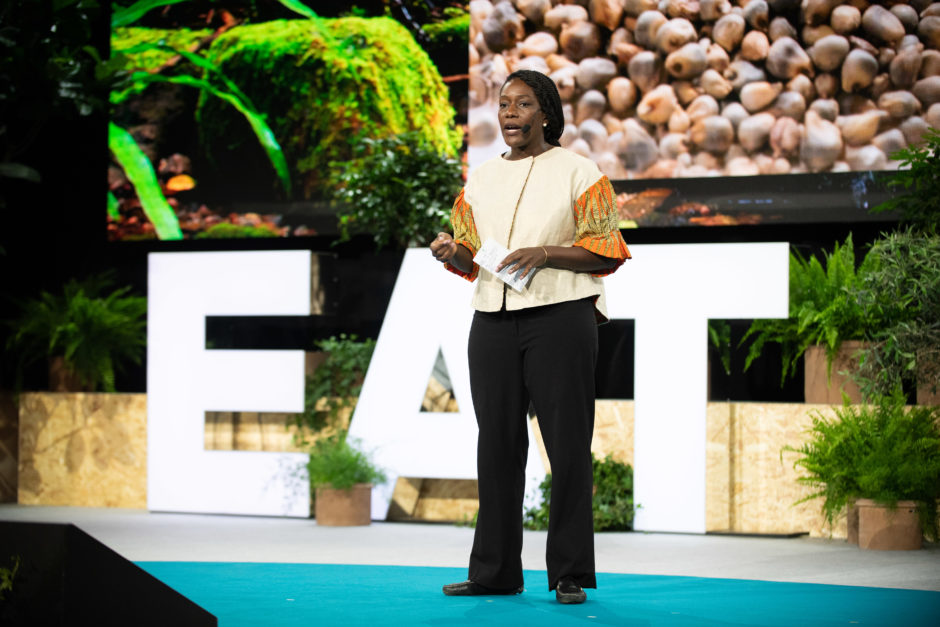One of the world’s most influential plant-forward chefs outlined her vision for African cuisine, and her work towards preserving it’s culinary heritage.

EAT Food Forum, Stockholm.
Photo: Linus Sundahl-Djerf
In the twelfth and last episode of the Faces of Food podcast, we meet Selassie Atadika, one of the world’s most influential and creative plant-forward chefs.
The culinary entrepreneur co-founded Midunu, the first nomadic restaurant in Dakar, Senegal, after spending a decade engaged in humanitarian work with the UN.
From New York to Dakar to Accra, Selassie is working to celebrate Africa’s cultural and culinary heritage, through plant-forward menus and inspiring conversations.
Read more: Q&A with chef Selassie Atadika

Chef Selsassi Atadika on stage during EAT Stockholm Food Forum 2019. Photo: Linus Sundahl-Djerf
Fighting for Africa’s Culinary Heritage
With a background in environmental studies and practical involvement working on global nutritional crises and food insecurity, Atadika sees the importance of eating lower on the food chain as a method to enable more people to access food.
Don’t miss this episode: How Do We Curb Eating Habits in China?
Indigenous knowledge including highly nutritious and plant-rich recipes is slowly being lost in the urbanization and fast-paced lifestyle of contemporary Africa. That is why Atadika has introduced the concept called “New African Cusine,” using native ingredients like millet, yams, sweet potatoes, leafy greens, nuts and beans of all kinds, which she obtains through a network of local farmers and producers.
Her nomadic enterprise Midunu works to integrate this approach and inspire healthy and sustainable consumption patterns.